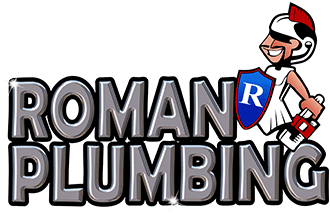What Is Hard Water?
Most people have heard about hard water, but many are unfamiliar with it and need to learn why it is bad. The truth is most US households are affected by hard water and would benefit from some interventions so complications don’t arise. Simply put, hard water carries a high concentration of naturally occurring minerals. The minerals come from local geological features, and they aren’t removed during the treatment process.
When these minerals reach high enough concentrations, they can precipitate out of the water and cause scale, damaging the plumbing. At lower concentrations, they can interfere with water's chemical properties, making it less effective at cleaning and rinsing. Luckily, dealing with hard water is as simple as installing devices called water softeners.
What Does a Water Softener Do?
 A water softener works to remove the minerals that cause water to be characterized as hard. Calcium and magnesium are the two most common culprits. Within a water softener, these are replaced with harmless sodium as the incoming water passes over a bed of ion-exchanging resin. The water softener takes up only a few square feet of space and operates automatically.
A water softener works to remove the minerals that cause water to be characterized as hard. Calcium and magnesium are the two most common culprits. Within a water softener, these are replaced with harmless sodium as the incoming water passes over a bed of ion-exchanging resin. The water softener takes up only a few square feet of space and operates automatically.
It consists of a resin tank and a brine tank that refreshes the resin when saturated with calcium and magnesium. A water softener is easy to install and takes very little maintenance on behalf of the homeowner. The only real chore they must attend to is keeping the brine tank filled with special salt, which only takes a few moments a month.
Signs of Hard Water
 Now that everyone knows what hard water is and how it is dealt with, most people are curious to know why it may be harmful and if they have it in their homes. Hard water is saturated with minerals, so it has difficulty dissolving substances. This means that soap can’t be rinsed off of dishes or clothing and can sit on the skin after a shower. As hard minerals move through the home, they can deposit inside water heaters, causing premature failure and corrosion that require significant remediation. Some of the signs that hard water is in the water supply are:
Now that everyone knows what hard water is and how it is dealt with, most people are curious to know why it may be harmful and if they have it in their homes. Hard water is saturated with minerals, so it has difficulty dissolving substances. This means that soap can’t be rinsed off of dishes or clothing and can sit on the skin after a shower. As hard minerals move through the home, they can deposit inside water heaters, causing premature failure and corrosion that require significant remediation. Some of the signs that hard water is in the water supply are:
- Dry, itchy skin and hair
- White, crusty buildup on plumbing fixtures
- Widespread corrosion in the piping
- Water heaters needing premature replacement
- Faded or dingy clothing that wears out quickly
- Spotty residue on dishes
Benefits of Water Softeners
Being free of the complications of hard water is cheap and easy with a water softener. When selecting a water softener, most homeowners prefer a whole-home water softener. This ensures that soft water is available at every fixture and that the entire system is protected. To get a water softener, schedule a visit from a local plumber and get a quote. Once a water softener is in place, homeowners can enjoy:
- Healthy skin and hair
- Long-lasting plumbing fixtures and appliances
- Better-tasting water
- Bright, colorful clothing
- Cleaner dishes
By installing a water softener, homeowners can protect their homes from high plumbing bills, enjoy better water, and improve their health and appearance. If hard water may be a problem, call a local plumber today.
About Roman Plumbing and Air Inc
Roman Plumbing and Air Inc is a full-service plumbing contractor that improves a home’s water quality with water softener and filtration systems. Their teams are background-checked and excel at customer service. Call today for water softening system service in New Port Richey, FL.

















